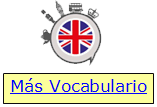 Gramática: TOO / ALSO Gramática: TOO / ALSO
¿Cuál es la diferencia entre too y also? ¿Cuándo debo utilizar too y
also?
Also / too = también
Reza speaks Spanish and Craig speaks Spanish, TOO/ALSO.
Reza speaks Spanish and Craig ALSO speaks Spanish.
Reza drinks tea, he also drinks Guinness.
TOO goes at the end of the sentence or
clause. Also can go at the end of the sentence or clause and before the
main verb.
“Also” comes after “to be.”
Examples:
I’m also going to the party.
Reza is British. Reza is also Irish (and proud!)
ALSO goes after the auxiliary verb and
before the main verb:
Craig has been to Cuba. Reza has ALSO been to Cuba.
ALSO también se puede poner al final:
Craig has been to Cuba ALSO.
“Too” usually comes at the end of a clause:
If he wants to go too, he should meet us at 8 o’clock.
Reza is working hard to find a recipe for dulce de leche. Craig, too, is
looking for a way to make it.
 Vocabulary Corner: The Family family Vocabulary Corner: The Family family
aunt – tía
uncle – tío
niece – sobrina
nephew – sobrino
cousin – prima / primo
grandson – nieto
mother-in-law – suegra
son-in-law – yerno
daughter-in-law – nuera
grandmother – abuela - gran, granny, nan, nanny, grandma (US)
brother-in-law – cuñado
stepfather – padrastro
stepbrother – hermanastro
 Phrasal verbs: A question from Mabel Phrasal verbs: A question from Mabel
Hi, I hope you’re having a good day. I would like you to explain a
little bit about the prepositions that are used in English after some
verbs. For example: “The building burned down.”
I mean why I can’t simply say: “The building burned.”
There is not very much difference, Mabel. They are very similar.
‘down’ = completion – ” It burned down to the ground.” Completion or
extension.
There are no fixed rules for prepositions.
Another example is:
“If you have a printer, you can print it off.”
Or:
“If you have a printer you can print it.”
‘Print’ is more general. ‘Print off’ or ‘print out’ of the computer.
 *Dispones
de más
PODCAST en inglés publicados en los cuadernos anteriores *Dispones
de más
PODCAST en inglés publicados en los cuadernos anteriores
a los que puedes acceder directamente así como al índice de su
contenido. |
|
|
 Gramática: TOO / ALSO
Gramática: TOO / ALSO

 *Dispones
de más
*Dispones
de más


